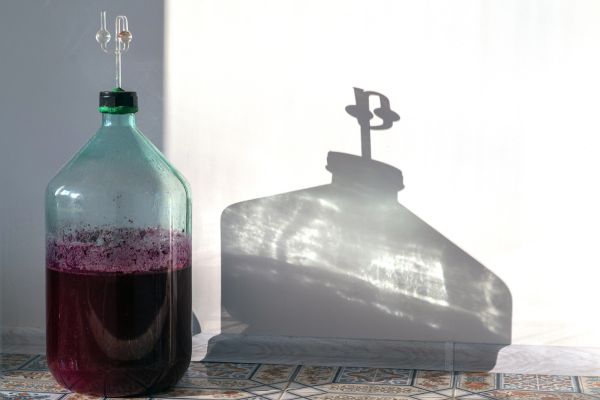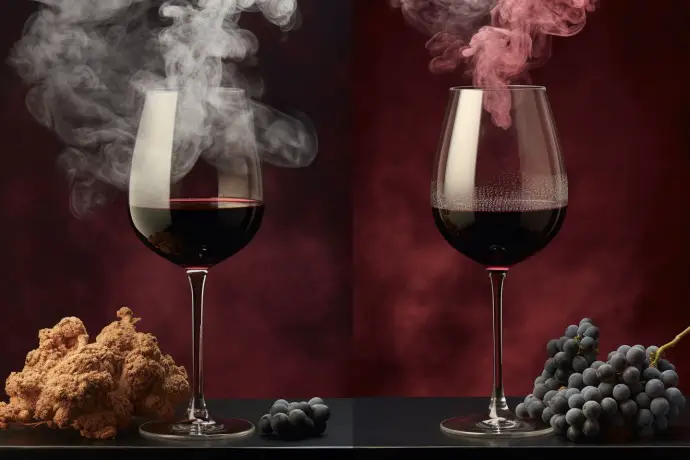Today we will be discussing a topic that has puzzled many a novice wine maker: how long does wine take to ferment?
As an experienced brewer, I’ve had the opportunity to see firsthand the effects of various factors on the fermentation process.
And while there are many variables that can affect the length of time it takes for wine to ferment, the general rule of thumb is that primary fermentation can take anywhere from one to four weeks, while secondary fermentation can last between two and four months.
After that comes aging or bottle conditioning that can take years!
But don’t be fooled by these seemingly short time frames. The fermentation process is much more complex and nuanced than a simple countdown.
Understanding winemaking and the Fermentation Process
Fermentation is the biochemical process where yeast consumes the sugars in the grape juice and converts them into alcohol and carbon dioxide. This process is what transforms grape juice into the delightful beverage we know as wine.
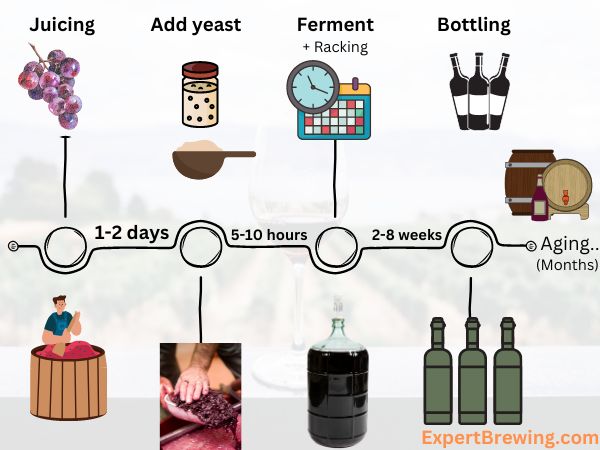
Primary Fermentation
The first stage of the process, known as primary fermentation, typically takes between one to two weeks depending on the temperature and wine type. This is where the bulk of the fermentation happens, with the yeast aggressively consuming the sugars and producing a significant amount of alcohol.
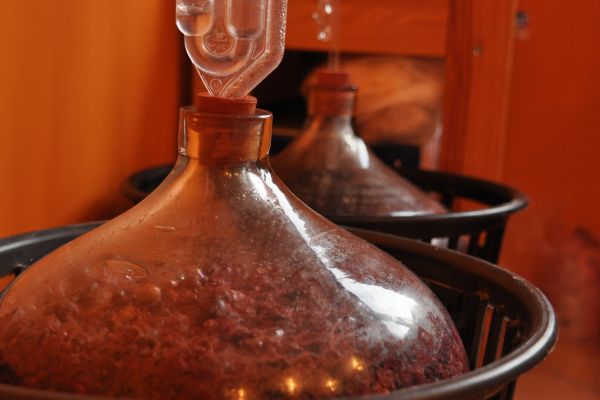
During this stage, the wine is kept in a large, open-top fermenter. This allows the carbon dioxide produced during fermentation to escape, preventing the buildup of pressure that could cause the fermenter to explode.
Secondary Fermentation
The second stage, or secondary fermentation, is a much slower and more gradual process. A secondary fermentation is not necessary for all wines, but allows the wine to develop.
This stage can last anywhere from weeks to months or more, depending on the type of wine you’re making and the specific conditions of your fermentation.
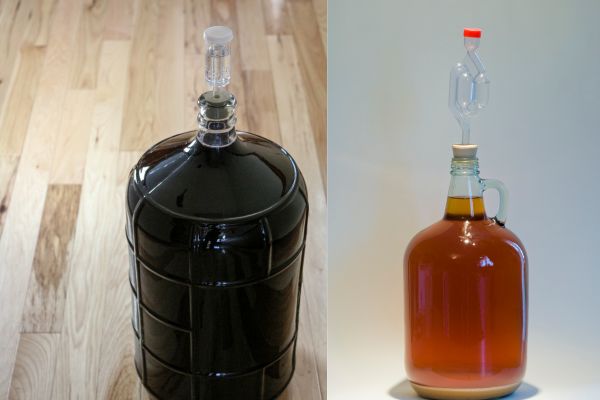
This stage is where the wine develops its complexity and character. It’s also when the remaining sugars are consumed by the yeast, resulting in a dry wine. If a sweeter wine is desired, the fermentation can be stopped earlier to leave some residual sugar.
This is also the stage where some winemakers already put their wine on oak caskets to absorb the taste of the wood and later to age.
Factors Affecting The Fermentation Process
Various factors can influence how long the fermentation process takes. These include temperature, yeast strain, and the sugar content of the grape juice.
Temperature
The temperature at which you ferment your wine can greatly affect how quickly the yeast works. Most yeast strains work best at temperatures between 70 and 85 degrees Fahrenheit (20-30 degrees Celsius).
If the temperature is too low, the yeast may become inactive and slow down the fermentation process. Conversely, if the temperature is too high, it could kill the yeast.
Yeast Strain
Different strains of yeast work at different rates. Some are more aggressive and can ferment sugar more quickly, while others are slower and can take more time. It’s important to choose a yeast strain that’s suitable for the type of wine you’re making.
Sugar Content
The amount of sugar in your grape juice can also affect the length of the fermentation process. More sugar means there’s more food for the yeast to consume, which can prolong the fermentation process.
The Importance of Patience
One of the most important things to remember when making wine is to be patient. The fermentation process cannot be rushed, and trying to speed it up can often result in a lesser quality wine. Remember, good wine takes time.
While patience is important, there are indeed ways to make wine very quickly – have you ever heard of “Turbo Wine”?
Make “Turbo Wine” in Less Than a Week!
Making your own wine has become much easier and faster. There are kits available that allow you to make wine in just 5 days, while the traditional process could take several months.
The improvement in winemaking is attributed to better raw materials, such as improved grape juice varieties like Cabernet Sauvignon and Chardonnay, and the use of superior yeast and clarifying agents.
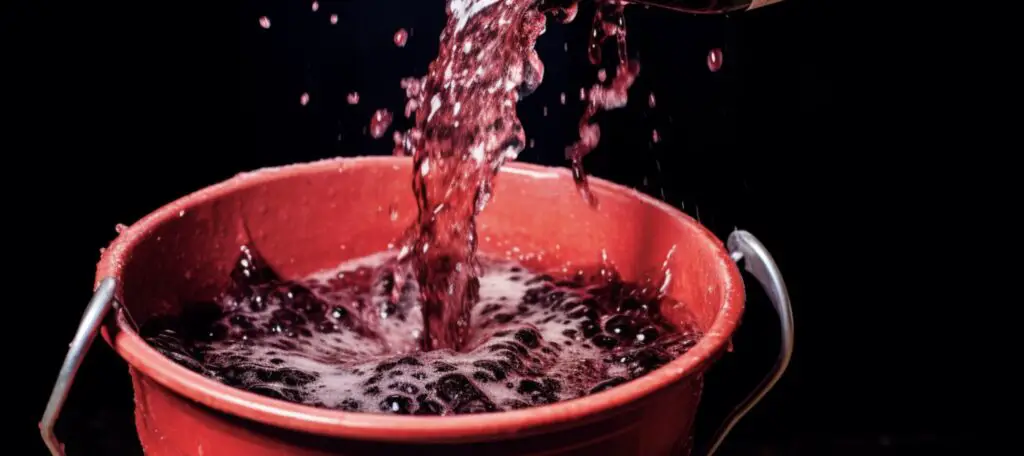
In the early 1990s, the concept of quick wines emerged, reducing the production time from three weeks to just nine days. This was achieved by introducing complete yeast nutrition, taking into account all the yeast’s needs during fermentation.
The right balance of nutrients, including trace elements, vitamins, and minerals, played a crucial role in achieving a fast and clean fermentation process.
Qualified microbiologists focused on fast fermentation techniques, leading to the development of turbo yeast and refined methods for producing quick wines.
Using a kit with already extracted juice and a fast yeast strain can get you actual wine in less than a week!
Following the success of nine-day wines, a range of other brands offering even faster fermentation times emerged, including seven-day, five-day, and one-day wine kits.
However, the one-day kits, which essentially involved a flavoured mash, were not as popular due to the compromise on taste and quality.
Among the various options available, Cantina’s five-day wine, particularly the Gold series made from special grapes, is considered the best in terms of quality and closeness to commercial wines.
Overall, the advancements in winemaking have made it easier than ever for enthusiasts to create their own wines, with improved results that rival those found in stores.
But aging your wine will always give the best result!
Importance of aging wine – its worth your time!
When it comes to wine, the importance of aging for a better taste cannot be overstated. Aging is a critical part of the winemaking process that allows the flavors and aromas to continue developing over time.

During this time, the harsh tannins in young wine begin to mellow out, providing a smoother finish and increased complexity. Additionally, oxidation occurs during aging, which further changes and refines the taste. The longer wine ages, the more these flavors and aromas will refine.
It’s important to note that different wines have varying aging potential, with red wines typically benefiting more from aging than white wines. The type of seal used on the bottle can also significantly impact aging potential. Moreover, price does not always equate to improved taste or aging potential.
When storing wine for optimal aging conditions, it’s essential to keep it away from sunlight and stored in a cool environment as higher temperatures can affect flavor and integrity. A dedicated wine fridge can provide an alternative option for proper storage.
Through history, various tests demonstrate the importance of aging in improving wine’s quality substantially.
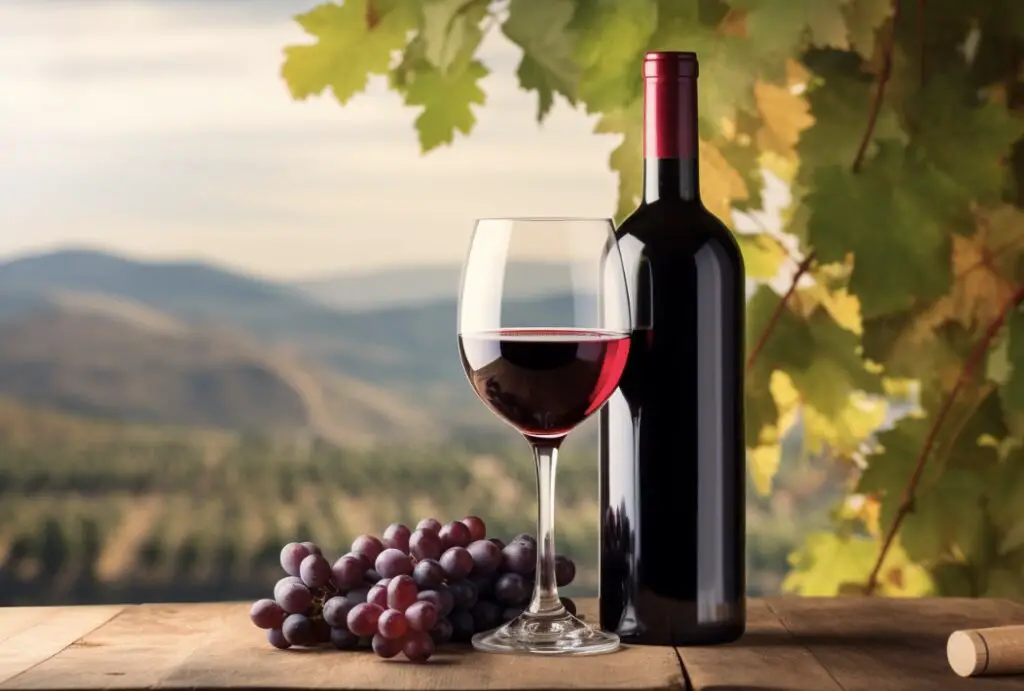
In 1990 Chateau Latour opened their vaults from years back offering numerous bottles dating back from 1863 which were marveled by critics with remarkable tasting notes; undoubtedly emphasizing how good cellaring elevates great wines’ flavors while still retaining structure and freshness over time – demonstrating indeed that good things happen with age when we talk about fine vintages such as Chateau Latour!
Get ready to invest in equipment that will make your kitchen look like a lab, because home winemaking requires some serious gear.
Conclusion
So, how long does wine take to ferment? As we’ve learned, primary fermentation can take one to two weeks, while secondary fermentation can last between two and four weeks. However, various factors such as temperature, yeast strain, and sugar content can influence the length of the fermentation process.
In summary, here are 10 key facts about the fermentation process:
1. Fermentation is the process that turns grape juice into wine.
2. Primary fermentation usually takes between one to two weeks.
3. This stage occurs in an open-top fermenter to allow carbon dioxide to escape.
4. Secondary fermentation can last two to four weeks or more.
5. This stage gives the wine its complexity and character.
6. The temperature at which you ferment your wine can affect the fermentation speed.
7. Most yeast strains work best at temperatures between 70 and 85 degrees Fahrenheit.
8. The yeast strain you choose can also impact how quickly the fermentation process takes place.
9. The sugar content in your grape juice can prolong the fermentation process.
10. Patience is crucial in wine making – trying to rush the process can result in a lesser quality wine.
Remember, the art of making wine is a journey, not a destination. So take your time, enjoy the process, and before you know it, you’ll have a delicious homemade wine to share with friends and family.
FAQs
When should I stop wine fermentation?
The decision to stop wine fermentation depends on the winemaker’s desired style and the specific characteristics they want to achieve in the wine. Typically, fermentation is stopped when the desired level of sugar, alcohol, or flavor profile is reached. This can be done by either allowing the yeast to consume all the available sugar or by intentionally stopping fermentation through techniques like cold stabilization, filtration, or the addition of chemicals.
How do I know when my fermentation is complete?
You can determine if your fermentation is complete by observing certain signs. These include the cessation of bubbles in an airlock or the absence of gas release when the fermentation vessel is gently pressed. Additionally, you can use a hydrometer to measure the specific gravity of the liquid. If the reading remains stable over a few days, it indicates that fermentation has finished. Another method is to taste the product. If it has reached the desired flavor profile and no longer tastes sweet, the fermentation is likely complete.
How do you know when primary fermentation is done?
Primary fermentation is typically considered complete when the specific gravity of the fermenting liquid remains stable over a period of several days. This can be determined by using a hydrometer to measure the specific gravity at the beginning and monitoring it until it no longer changes. Additionally, signs such as the absence of airlock activity, reduced bubbling, and a decrease in the release of carbon dioxide can indicate the completion of primary fermentation. It is important to note that each fermentation process may have specific requirements, so following the instructions provided with the recipe or consulting a brewing expert is recommended.
When should I stop fermentation?
Fermentation should be stopped when the desired flavor profile and alcohol content have been achieved. This can be determined by monitoring the specific gravity or sugar levels of the fermenting liquid. Additionally, if the fermentation process is becoming too vigorous or the yeast has consumed all available sugars, it may be time to stop fermentation.
Does longer fermentation mean better wine?
Longer fermentation does not necessarily mean better wine. The duration of fermentation depends on various factors including grape variety, winemaker’s intention, and desired wine style. While some wines benefit from extended fermentation, others might lose their desired characteristics or develop off-flavors. The key is to find the optimal fermentation time that allows for the desired balance of flavors, aromas, and structural components in the final wine.
How long should I let wine ferment?
The duration of wine fermentation varies depending on the type of wine being produced. Generally, red wines require a longer fermentation period of around 7-14 days, while white wines typically ferment for 10-14 days. However, this is just the primary fermentation stage. Afterward, the wine may undergo secondary fermentation, aging, or other processes which can extend the overall fermentation time. It’s important to follow a specific recipe or consult a winemaking guide to determine the appropriate fermentation duration for the specific wine you are making.

